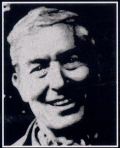Note added July 9, 2005: This article is featured in the 12th Skeptics Circle. This time, the Circle has a decidedly western feel. Take a look.
It’s been announced that Bill Kaysing has died.
| He’s the man most people credit (if that’s the word) as the original person to claim the Apollo Moon landings were faked. I’ll admit, his death leaves me with mixed feelings. I’m saddened that he has died, but I must be honest and say he was a monumental antiscientist, responsible in many ways for one of the most colossal wastes of time and effort in my memory. |

|
A Google search on the terms “moon hoax” yields a quarter million hits; “apollo fake” a hundred thousand more. How much energy, how much brain power, how much simple time has been wasted on this ridiculous claim? Even today, four years after that atrocious Fox “documentary” loaded with fallacious claims about NASA faking the Moon landings, my Moon Hoax page still is the most popular static page on my site, getting almost a half million readers per year. I get mail almost daily about this as well. A lot of people chew on the gristle of the arguments, and without the proper evidence– evidence, I’ll be blunt, Kaysing never gave them – they may walk away convinced the landings were faked.
Kaysing virtually spawned an industry of deception. Bart Sibrel, Ralph Rene, David Percy, and literally dozens of others have made money off of deceiving the public through the withholding of evidence, using deceptive descriptions, and in some cases telling outright lies. I have dealt with all of these men in various circumstances, and have found them to be all-too willing to stoop as low as possible to convince people of their arguments.
To be fair, some may actually believe what they say. Kaysing may have. But he was still wrong, and made claims that are sickening (NASA killed the Apollo 1 astronauts to keep them quiet; NASA blew up Challenger on purpose to keep the astronauts quiet about the “fact” that space travel is impossible, and much more). And he was disingenuous: in the Fox TV show, he was quoted as saying that if NASA pointed Hubble at the Moon landings, it would show clear evidence if they were real, and further said that if he saw those pictures he would stop making his claims. First, Hubble cannot see objects that small on the Moon. Second, NASA returned literally thousands of images from the astronauts themselves! Why would he believe a few more from Hubble?
As I said, I’m saddened by his death, but I am far more saddened that thousands, maybe tens of thousands, of school children might buy into this outrageous bill of goods. I have heard many stories of kids talking to their teachers about the missions being faked, and more galling, of teachers telling their school children that Apollo wasn’t real! I worry about the erosive affect this has on young minds, teaching them to ignore evidence and to simply believe what they are told– the very antithesis of what science is.
All this, from Bill Kaysing.
Yet, I hold out some hope. First, of course, for as much garbage as exists on the web, there are some pages that fight it. My efforts are just one example among many others who have picked up this gauntlet thrown down by antiscientists (I maintain a list of webpages on both sides of this issue).
And maybe there is even a glimmer of gold amongst all this offal. Years ago, when I was researching this topic for my book, I was getting pretty upset by it. I mean really upset, angry that people could make these appalling claims. I was having trouble sleeping at night, and my stomach was upset. One day, while looking at one image Kaysing said showed evidence of stage lighting, I was struck by the lighting, the contrast, the simple fact that here I was, looking at a picture of a man standing on the surface of the Moon. He had traveled a quarter of a million miles, risking his life, and there he was, feet planted on another world, holding up a sample of lunar dust for the whole world– his home world– to see.
I was overwhelmed with a sense of awe, a sense of pride, a warmth, and a satisfaction knowing that what I was doing was the right thing. It was the last time I lost sleep over the Moon Hoax.
Without Bill Kaysing, it must be said, I never would have experienced that. And I never would have regained my fascination for the Apollo missions and for the Moon itself; two aspects of my life I enjoy with great love now. Who knows how many others have been similarly affected?
So, to Bill Kaysing: you did a lot of terrible damage to the world. But you maybe, just maybe, did a little bit of good in the process, too.